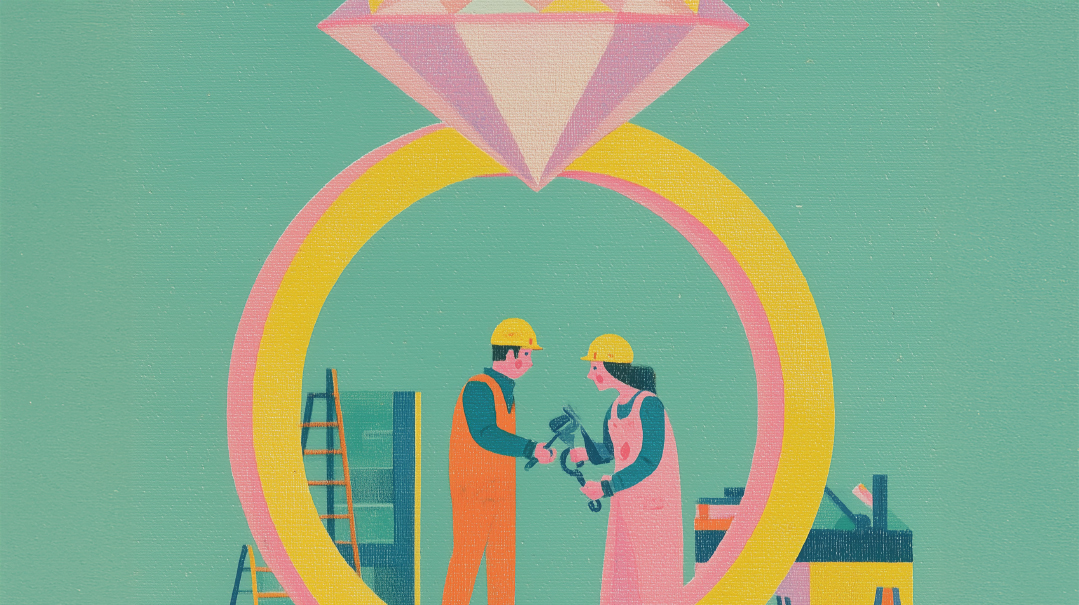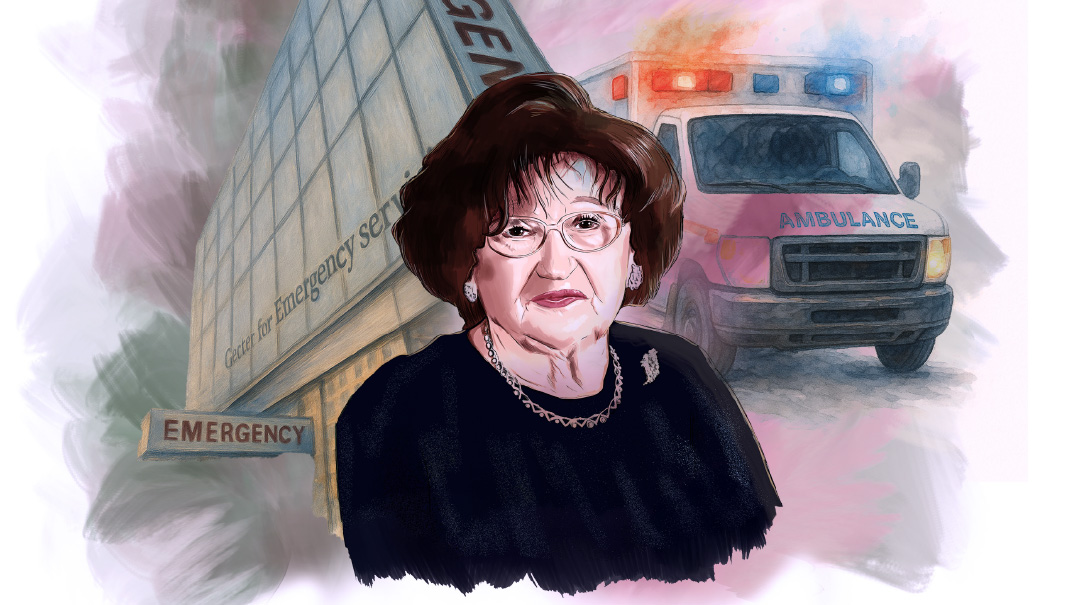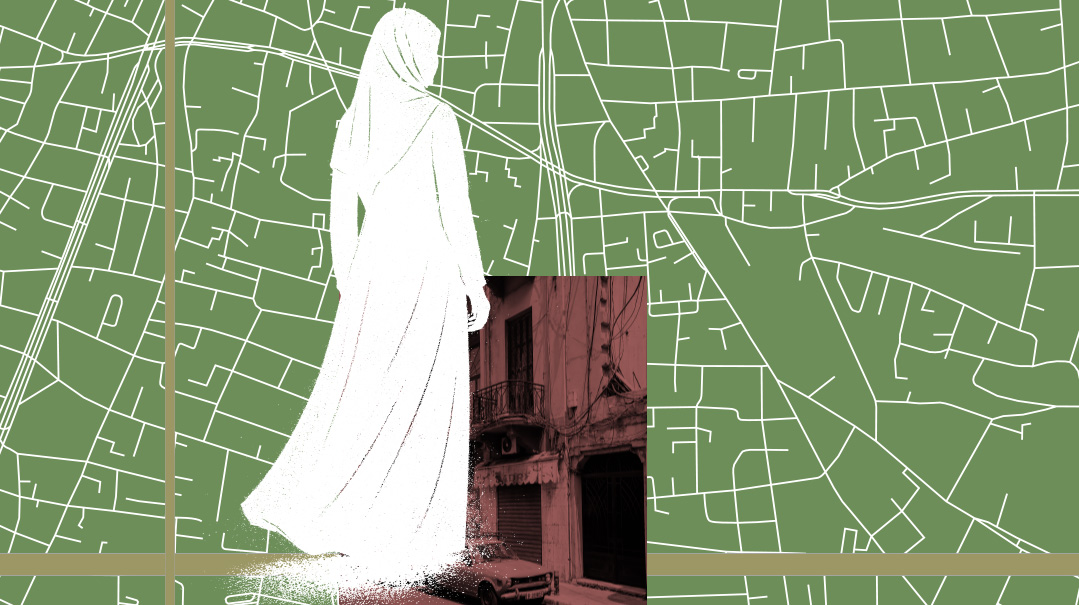Marriage from Scratch
| May 18, 2011How do kids deal with the shidduch stigma of their parents’ divorce? How do they build healthy marriages when they didn’t grow up with a positive example? Parents and children share their firsthand experiences
Gila Jacobson* will never forget the time she was sitting in the backseat of a car listening to her newlywed cousins discuss directions to a store. It was in the early 1970s and Gila was then an impressionable teenager. “My cousin told her husband to make a left turn instead of a right one. When they realized it was a mistake, he took it so calmly — there was no blow up. I couldn’t believe my ears. In my family, that would have sparked an explosion,” says Gila, now a grandmother.
Growing up with parents who were in a volatile marriage left Gila with deep emotional scars. Yet a few years after their divorce, she managed to put the pain behind her and enter a marriage of her own, a relationship that has withstood the test of time and still remains strong.
How did she do it? For divorced parents and their children, that is the million-dollar question.
The Emotional Impact
The mere thought of marriage can trigger doubts and worries in the mind of a child of divorce: Will I have the same kind of miserable home that I was raised in? Can I succeed where my parents failed?
“I grew up in a house with a lot of shalom — until things soured suddenly. I was very nervous because I didn’t want the same mistakes that had been made by my parents to happen to me,” says Yehudis Rosen,* whose parents divorced when she was a teenager.
These fears are, sadly, well-founded. A recent study conducted by Paul R. Amato and Danelle D. DeBoer reveals that children of divorce in America today are far more likely to get divorced than children whose parents stayed married, even if they experienced discord at home. One contributing factor might be the negative family interactions these children witnessed, which can have a deep psychological impact.
“Coming from a broken home, which was actually breaking long before the divorce happened, I always felt a sense of insecurity in relationships. I was very afraid of conflict since I associated it with relationships ending,” says Penina Segal,* whose parents divorced shortly before she left for seminary. “The strife I grew up with is a constant background in my functioning today — all my challenges are rooted in that,” she says.
“For me, it was an issue of trust — trusting that my spouse wouldn’t reject me,” says Yehudis. “It took me a long time to feel like I was a good enough person that someone would want to marry me.”
“Was my future spouse going to consider my needs or not?” Penina also wondered. “If my needs were not being met, how would I go about pursuing them without raising conflict or being rejected?”
Issues with trust seem to be common: Family experts have found that when children observe parents fighting and no longer working as a team, they lose their trust in lasting relationships.
Healing from the Break
“Are these children hurt?” asks Miriam Rebibo, an individual and family therapist based in Yerushalayim. “Yes, because there is loss. But sometimes that makes them stronger,” as she has seen firsthand.
“If a person gets the help they need when the divorce happens, they can bring much more maturity and depth into the marriage. The kids who have faced their experiences and dealt with them can be quite prepared for marriage, because they’ve had to deal with all sorts of things that have gone on in their life,” adds Chana Silver, a popular seminary teacher and experienced shadchan in Yerushalayim.
Especially for children who were in the teen years at the time of the divorce, therapy is often an important step in preparing for marriage. Yehudis explains that because her parents’ divorce was so traumatic, she found herself in therapy for a long time, which was invaluable in crossing the bridge into the shidduch parshah. “I definitely grew up and matured a lot after my parents divorced. I started asking a lot more questions, and I gained a lot more depth.”
Seeing a counselor post-marriage, as Gila did with her husband, can be just as beneficial. “I have an anger issue, and I needed to learn how to overcome it,” she admits. Her husband, also the child of a divorce, had his own issues to face, too. Their marriage survived because Gila’s husband was very close to his rosh yeshivah, and she had relatives who looked out for them, which helped the couple through many a rough spot.
“People from divorced homes should be aware that they’re going to need help,” Gila stresses. “Things will come up and your knee-jerk reaction is not going to be the right one because you didn’t have good role models.”
Indeed, observing healthier, more positive marriages can counterbalance the negativity children witness during their childhoods. “Growing up, I couldn’t fathom why people got married, and I certainly didn’t want to get married myself,” says Penina, “but then I saw in other people’s houses that marriage could be positive, that there were marriages that provided support, love, and understanding. That touched me deeply.”
Gila had the same experience: “My parents’ marriage was miserable, but there were families who made it their business to open their homes to us, and they were the ones who showed me what marriage could be.”
Being anchored in Torah was equally as helpful for Devori Rotbard,* whose parents divorced when she was a young girl. Since she had grown stronger in Yiddishkeit than her parents had, she felt that she had a much more solid base for building a healthy marriage. As a result, “I wasn’t scared to take the leap,” she says.
Dating Difficulties
Once children of divorce have proven to themselves that they’re ready for shidduchim, they still need to prove it to the rest of the world, which is no easy task. In today’s shidduch world, divorce is a huge stigma that can leave many high and dry when it comes to getting set up.
“Sometimes there’s an automatic assumption that someone coming from a divorced home must have an inherent flaw, which is obviously not true,” Miriam explains.
Self-confidence plays a big role in surviving the “black mark” of divorce. “My attitude was, ‘If someone doesn’t want to go out with me because my parents are divorced, I don’t want to go out with him, either,’$$separatequotes$$” says Gila.
“I knew people wouldn’t want to date someone who came from a divorced home, and I accepted that,” adds Penina, “but it was upsetting to hear it stated publicly by someone in a position of authority — by a teacher, for example. No one likes to be openly degraded, especially about something they didn’t choose. I often wondered if teachers who talked about the stigma of being a child of divorce had any idea what it was like to be that child.”
Since dating is already fraught with insecurity, it can be especially hard to fight off feelings of inferiority. “My sister, a year and a half older than me, felt like damaged goods,” Gila recalls. But that’s a mistake, Miriam stresses: “Children of divorce should not view themselves as second-rate.”
For a single who is unsure of herself, a teacher or rebbetzin can be a huge support. When Penina was ready to enter shidduchim, at age twenty, she was nervous, but teachers who knew her well said she was as ready for marriage as anybody needed to be.
Meeting Mr. Right
Once a girl with divorced parents enters the shidduchim scene, she might find that all the boys she’s redt have one thing in common: they also come from broken homes.
This shouldn’t be the case, says Chana. If children of divorce have worked through the issues they’ve faced as a result of their background, there’s no reason for them not to be on equal footing with any other frum boy or girl out there. A person needs to be viewed in the totality of their personhood — middos, level of frumkeit, and more, rather than just what kind of background they come from.
There are, however, some advantages to dating a boy from a broken home. For example, with so many “issues” floating around in the world today, “if you know what the other person’s issue is, you’re probably better off,” Devori claims.
Penina recalls that when she was dating, she felt there were maalos to the boys who came from intact marriages and maalos to boys from divorced homes: “If a boy came from a happily married home, he’d have good role models for marriage, whereas if he didn’t, he’d be able to understand what I’d been through. I was open to either option as long as the boy had taken what he was supposed to from the experience.”
Yehudis’s mother, on the other hand, refused to let her daughter date boys from broken homes, despite the fact that Yehudis was also a child of divorce. “You know what a shalomdig house looks like, and I don’t want you marrying someone who doesn’t,” she’d tell her daughter.
Another downside of marrying someone who also comes from a fractured home is that the future children will grow up without a single intact set of grandparents. It can also be a struggle for these couples to get to the level of marital harmony that other people come by naturally. It takes a lot of hard work — but, as it turns out, that often comes more easily to children of divorce.
Committed to Growth
Miriam notes that in her experience, children of divorce often approach marriage more carefully and work harder at their marriage because they don’t want their own children to go through what they did. Now married over twenty years, Devori says that she made her marriage a priority because of her parents’ divorce.
Penina would never wish it on anyone else, but she, too, feels that she’s a different person today because of her childhood. “Many people say that one of my most outstanding qualities is my ability to handle other people’s sensitivities in a gentle and effective way. I know the harm that can come from thoughtless comments, and I’ve learned to tactfully avoid them, even in trying scenarios.”
Gila’s experiences have made her more fundamentally aware of the fact that people can change who they are. “I distinctly recall saying to my husband early on in our marriage, ‘This is me. If you don’t like me, too bad.’ Now I’ve learned that people can change. I’ve learned to tame my temper myself — and I’ve passed this legacy on to my children as well.”
Change was especially sweet for Yehudis, who eventually overcame her fear of rejection. “In the beginning of my marriage, whenever my husband and I had a disagreement, I was afraid he would divorce me,” she admits. “Eventually, I realized that he was in it for the long haul.”
*Name has been changed.
The Right Preparation
Being a divorced parent doesn’t mean that you can’t help your kids set the stage for a healthy marriage. Here, some tips from experts:
- “You need to reassure the child that just because Mommy or Daddy had a certain nisayon, it doesn’t mean they will have it, too,” Miriam advises. She also stresses the importance of being as accessible and open as possible, without exposing private issues.
- “Encourage the child to have a relationship with the other parent,” says Miriam. “Wherever you can find forgiveness and kindness for the other parent, do.” And keep this is mind: Even when divorce is a reality, children who have healthy parental relationships have a much greater likelihood of building their own successful marriage.
- “Tell your child repeatedly that even if the marriage was painful, at least we had a gift, and that gift was you,” Miriam recommends. It is essential to build your kids’ self-esteem.
- “Whatever is between you and the other parent should stay between you, and not involve the children. There’s so much continued dysfunction when one of the parents tries to turn the children against the other parent. Parents must have their own support system, and not turn to the children for support — that only contributes to the dysfunction,” adds Chana.
Are Your Parents Divorced?
If so, you’ve probably already thought about all the issues that can result from growing up in a broken home — not just once, but many times. For those of you in the shidduch parshah, heed this advice on how to prepare for marriage:
Pay close attention. Make a point of watching good marriages in action, either those of close relatives or of a teacher or rav and rebbetzin. Just like a baal teshuvah needs to witness frum life firsthand, a child of divorce needs to witness healthy marriages firsthand.
Pick and choose. Most likely, not everything from your parents’ marriage was bad. “Think about what went wrong and process it,” Devori says. “Know which things to take with you into your marriage — and which to avoid.”
Don’t stew. It’s important not to wallow in the past and let the divorce drag you down. “The situation is what it is,” Mrs. Silver counsels. “You have to pick up the pieces and do great things with them. Utilize the situation to grow as a person, and move on from it.”
Try out therapy if there’s something blocking you from being ready for marriage. Even if the divorce happened many years earlier, therapy can help you learn valuable communication skills, anger-management techniques, healthy boundaries among family members, and other critical life skills.
Take failure out of your vocabulary. Even if your parents weren’t able to make their marriage work, that doesn’t mean you’ll repeat the same pattern. You can change the script and start afresh.
Present yourself well. Just because you come from a divorced home doesn’t mean that you’re not firstrate material. Don’t ever forget that.
Trust your instincts. Don’t allow yourself to be talked into dating someone who doesn’t seem appropriate, just because “you’re both from divorced homes.”
Are Your Children in Shidduchim?
With divorce rates up, it’s possible that your child will be redt a girl or boy whose parents ended their marriage. How do you know if the young person has, indeed, healed from the scars of his or her parents’ divorce? What do you look out for?
Do some serious research, Chana advises. For example, “What went on, how long ago was the divorce, how old was the child at the time? Did they get help or therapy? Do they appear to be functional — in society and socially? Do they have good middos? Did it affect them hashkafically? Did they have a mentor who helped them through it?”
Once you’ve gathered this information, Chana continues, sit down and evaluate it. Don’t just dismiss the boy or girl out of hand; digest what you’ve heard and present the information to a rav you’re close to. Sometimes you’ll see that even if you wouldn’t have chosen the situation l’chatchilah, it may not actually be so bad. It’s not a matter of right or wrong per se; it’s just an option you didn’t consider before. Be open to possibilities.
Parents shouldn’t be afraid to let their children date children from divorced homes. “If you do your homework, and you find out that the boy is a good kid and doing well, there’s no reason to be afraid of letting your child date him,” says Miriam. “Look for stability, commitment, simchas hachayim — regardless of whether or not the child is from a divorced home.”
You may just find that your child’s date is more prepared for marriage, both on a maturity level and an emotional level, than his or her contemporaries.
(Originally featured in Family First, Issue 241)
Oops! We could not locate your form.






